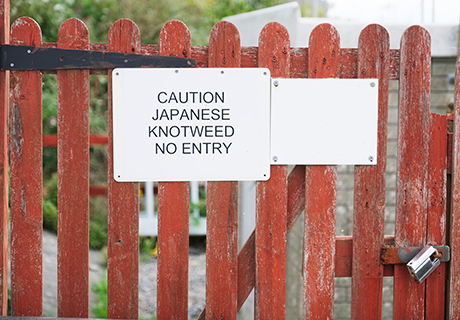

Wrestling with Humourous Beasts: A conversation with Polly Barton, translator of Aoko Matsuda’s Where the Wild Ladies Are
2022.01.21
- Aoko Matsuda
- Polly Barton
Polly Barton’s translation of Aoko Matsuda’s short story collection Where the Wild Ladies Are (Obachan-tachi no iru tokoro) was published by Tilted Axis Press and Soft Skull Press to rave reviews from The New York Times, The Guardian and NPR. As Publishers Weekly wrote, Matsuda’s collection “turns traditional Japanese ghost and yokai stories on their heads by championing wild, complex women.” In this interview, Barton discusses the challenges of dialogue and the sources of her inspiration.
David Boyd and David Karashima: As a translator, how do you approach dialogue? Does translating Matsuda’s dialogue involve any additional layers or concerns?
Polly Barton: I guess my first priority for translating dialogue is that it sounds like actual dialogue. And to do that, I often have to drink down the Japanese and then forget about it while I spit it out in English, as if I was saying it or writing it. I think it’s as a result of that that I get told that so much of my translations are “unashamedly British” sounding. Aoko’s dialogue is very funny, but I feel that the humour is very much tied with not only mood or character-building but also with humanity and empathy, and so it never feels like just an extra that can be tacked on at the end. The humour almost drives it, and then along with that comes everything else, particularly the relationality between the characters.
DB & DK: “Hina-chan,” we’re presented with two distinct styles of dialogue, one of which is associated with the Edo period. How did you deal with that? Did you do anything to signal oldness? Formality? Anything else you wanted to convey?
PB: Yes, this scene is all about the narrator encountering a (ghost) character from a totally different background, and her reaction shifting from a conventional one of horror and surprise to one of empathy (which paves the way for the love that develops between them). And it’s important that the reader’s reaction traces this same arc, but at the same time, the contrast between the spoof Edo period language of Hina-chan and the hyper-casual vernacular of the narrator is extremely amusing. I conceived of it mostly in terms of establishing this contrast, so while the narrator uses short sentences, plain language, lots of question marks and explanation points and is generally very expressive, the archaic quality and formality of Hina-chan’s language is signalled by long sentences, overblown grammatical constructions, quite poetic word choices, and a generally much more elegant mood.
DB & DK: Did you have any English-language models in mind when handling Hina-chan’s dialogue?
PB: You know, I don’t think I’d consciously articulated this to myself before, but thinking about it now, I think I had Jane Austen washing around at the back of my mind. Or at least, her influence was. I feel like the fake-Edo English is loosely based around Austen’s language usage – which is starchy and can work to connote “historically nonspecific oldness” while also being perfectly comprehensible, both semantically and in terms of emotional resonance as well.
DB & DK: Perhaps we can focus on your translation of “hanzai daro.” What’s happening with the narrator’s voice here? How did “Fuck!” come into being?
PB: I think this is one of the things that Aoko does so incredibly well, these kind of internal monologues from the characters that are clearly internal but also so very verbal—the kind of thing you might say to yourself if you were alone in a car, or something. And I guess from “hanzai daro,” I got this fresh, sharp blade of indignation. It’s masculine language, and there’s something incredible endearing about it from this narrator – it’s basically her empathy coming off in the form of this hot steam. For “hanzai daro,” I have “I mean, he should have been locked up!” which deals with the semantic content, I guess, but that didn’t feel quite enough, and that’s where the “Fuck!” came in. I felt like I needed something for the vent of steam, and that was the “Fuck!” I know there are some Japanese translators who find it questionable to use swear words, but I’m not one of them, or at least, I’m definitely not when I’m translating Aoko. I feel like what is so remarkable about her as a writer is that nothing is off-limits to her linguistically, from what’s around her in the contemporary moment, and I feel like I then take that permissiveness of her’s and apply it to the English model, and that necessarily embraces swearing.
DB & DK: Translating dialogue often creates a certain kind of cartoonishness, which we sometimes seek to avoid. That said, there are some cases in which that cartoonishness can be embraced. Did you find anything like that in your translation of “Hina-chan”?
PB: Finding that balance was definitely something that I thought a lot about whilst translating this, and something that I worked on more with my editors. Because it is cartoonish in the original—it’s a ludicrous situation being described. The narrative embraces that, and the humour depends on it. I feel like it needs that cartoonish quality to convey the clash that’s taking place in this scene. But if it’s only stupid, then we lose the emotional resonance. So, for humour I had things like, “It would be a great honour if you would let me serve you, as your chambermaid.”/”My chambermaid…?” But for example, when the narrator realises that the figure in front of her is a ghost, I avoided going full-on “It’s a…gh-gh-ghost?!?!” because I felt that carries us too far into caricature, and ultimately prevent the reader identifying with the characters.
DB & DK: How did you settle on your translation of “first contact”? Why avoid the direct translation? Did it feel too (literally) alien?
PB: This is one of those times where the katakana English phrase works so well in Japanese, precisely because it can be katakana English: it manages to be amusing and have that science fiction reference, but also signal fondness and warmth. Whereas I think “first contact” in English is a far less humorous beast—it feels to me quite cold and clinical, generating this sense of approaching a great other. Which is exactly what this story seems written against to me – it’s about seeing past the trappings of otherness and finding intimacy with this being who was otherized in life and then otherized in death—so it felt really important to avoid that. I deliberated a lot but in the end I went for “those first hours”, which is quite marked in that it’s kind of overblown and sentimental, while in its composition being quite simple.
DB & DK: “Shigemi-chan is just fine.” There’s a lot happening in this exchange. Could you touch on what went into your decisions here? How did you arrive at being okay with “chan” in this piece?
PB: I felt like in this story “chan” is doing a lot of work – it’s standing in contrast to the archaic title that Hina-chan suggests (Shigemi-dono), so it’s a marker of contemporariness, but it also marks their shift over to a relationship of equality and less reserve. At first, I was worried about whether that would be legible to an English reader not familiar with “-chan” and how it functioned, but then I realised at some point down the line that the way that the dialogue is set up means that it’s defined for the reader in use – that in saying ‘X is just fine’, you’re telling the reader that to Shigemi’s (modern) eyes, X is more casual and more intimate.
DB & DK: Finally, “dorodoro,” “buruburu,” etc. — Could you tell us a little bit about how sound symbolism is rendered in your translation of “Hina-chan”?
PB: Yes, sure. I don’t really have a particular policy for dealing with mimetics in Japanese, I tend to take it on a case by case basis. Often for a mimetic + verb construction in the Japanese, I’ll just go for a single verb or adverb or adjective in English, but I try to make sure that whatever word that is attends as much as possible to the visceral qualities of the original, and maybe factors in a bit of sound symbolism as well, if possible. Dorodoro boroboro here became “tattered, muddied kimono,” which seemed to me to replicate a little bit of the repetition and reduplication. Ikari de buruburu to furueta, became “shook with anger”: it’s definitely simple, but feels again quite visceral and strong in English, which seemed like what was called for.
Polly Barton is a translator of Japanese literature and non-fiction. Born and raised in London, she studied philosophy at Cambridge before travelling with the JET Programme to teach English in Sado Island, Japan. Her translations include Spring Garden by Tomoka Shibasaki and Where the Wild Ladies Are by Aoko Matsuda (which was awarded a World Fantasy Award in 2021). Barton’s memoir Fifty Sounds was published by Fitzcarraldo Editions in 2021.
David Boyd is Assistant Professor of Japanese at the University of North Carolina at Charlotte. He has translated fiction by Hiroko Oyamada and Mieko Kawakami, among others. His translation of Hideo Furukawa’s Slow Boat won the 2017/2018 Japan-U.S. Friendship Commission (JUSFC) Prize for the Translation of Japanese Literature.
David Karashima is Associate Professor of Creative Writing at the School of International Liberal Studies, Waseda University. He has translated the works of a range of contemporary Japanese writers including Hitomi Kanehara, Shinji Ishii and Hisaki Matsuura. His nonfiction book Who We’re Reading When We’re Reading Murakami was published by Soft Skull Press in 2020.
Related
-

The Invisible Onlooker: A conversation with Lucy North, translator of Natsuko Imamura’s The Woman in the Purple Skirt
2022.03.16
- Lucy North
- Natsuko Imamura
-

Mimicking Mood and Manner: A conversation with Michael Emmerich, translator of Fukunaga Shin’s “Almost Everything in the World”
2022.01.18
- Michael Emmerich
- Shin Fukunaga
-

Some Prefer Footnotes: A conversation with Margaret Mitsutani about her translation of Yoko Tawada’s The Emissary
2021.09.10
- Margaret Mitsutani
- Yoko Tawada
-

Living in a Storied Neighborhood: A conversation with Ted Goossen about his translation of Hiromi Kawakami’s People from My Neighborhood
2021.09.10
- Hiromi Kawakami
- Ted Goossen
-

Merely a Beautiful Dream? A conversation with Hitomi Yoshio, translator of Mieko Kawakami’s “Dreams of Love, Etc.”
2021.09.03
- Hitomi Yoshio
- Mieko Kawakami
